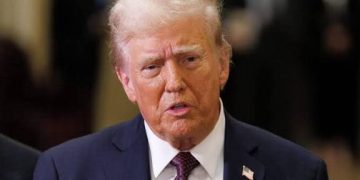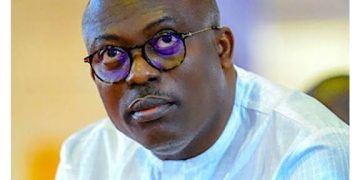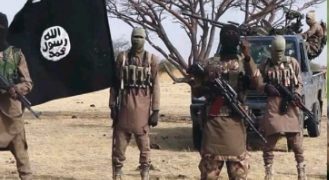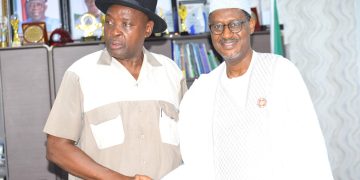Imo State Governor, Hope Uzodinma, on Tuesday approved a new minimum wage of N104,000 for civil servants in the state, a move that has sparked mixed reaction.
While some hailed the development, others questioned the timing, calling it a political landmine laid for the next Imo State governor.
Uzodimma who was sworn-in for a second and final term in January 2024, has less than three years in office and did not indicate when the new wage would take effect.
Announcing the new minimum wage during a meeting with leaders of various labour unions at the Government House in Owerri, Uzodimma said medical doctors in the state will also see their pay rise from N215,000 to N503,000, while lecturers in tertiary institutions will now earn N222,000, up from N119,000.
He explained that the decision was in respond to the economic realities faced by citizens since he assumed office in 2020, ranging from insecurity and the COVID-19 pandemic to hardship caused by subsidy removal and wage disputes.
“There is no way any government will do well if it doesn’t have a friendly and cordial relationship with the organised labour.
“When workers are paid well, productivity rises, families are happier, and the local economy grows.
“This is our way of investing in Imo people. Government believes in stimulating political and economic activities, carrying bureaucrats along, and making sure that workers’ welfare was highly respected,” he said.
Uzodinma said that the state Internally Generated Revenue (IGR) had grown from N400 million to over N3 billion monthly.
According to him, in 2020, we were receiving allocations between N5 billion to N7 billion, but has increased to N14 billion.
“In 2020, the state recorded a debt profile of over N280 billion but has reduced to less than N100 billion,” he added.
He disclosed that Imo’s Internally Generated Revenue (IGR) had grown from N400 million to over N3 billion monthly, while federal allocations to the state had also risen to about N14 billion, compared to N5–7 billion in 2020.
On debt management, Uzodinma revealed that the state’s debt profile had dropped from N280 billion in 2020 to less than N100 billion, stressing that this financial turnaround made the wage increase possible.
The governor further stated that his administration had invested heavily in rebuilding collapsed infrastructure, particularly roads, and had strengthened security operations across the state. He also noted that reforms in the health sector, including a health insurance scheme and upgraded facilities, were part of his commitment to improving citizens’ welfare.
He added that the state government would begin payment of the final batch of N16 billion gratuity owed to pensioners on August 27, describing it as another step toward clearing the backlog of workers’ entitlements.
Uzodinma credited President Bola Tinubu’s removal of fuel subsidy as a policy that increased allocations to sub-national governments, insisting that the responsibility now lies with governors to ensure the benefits reach ordinary citizens.







































